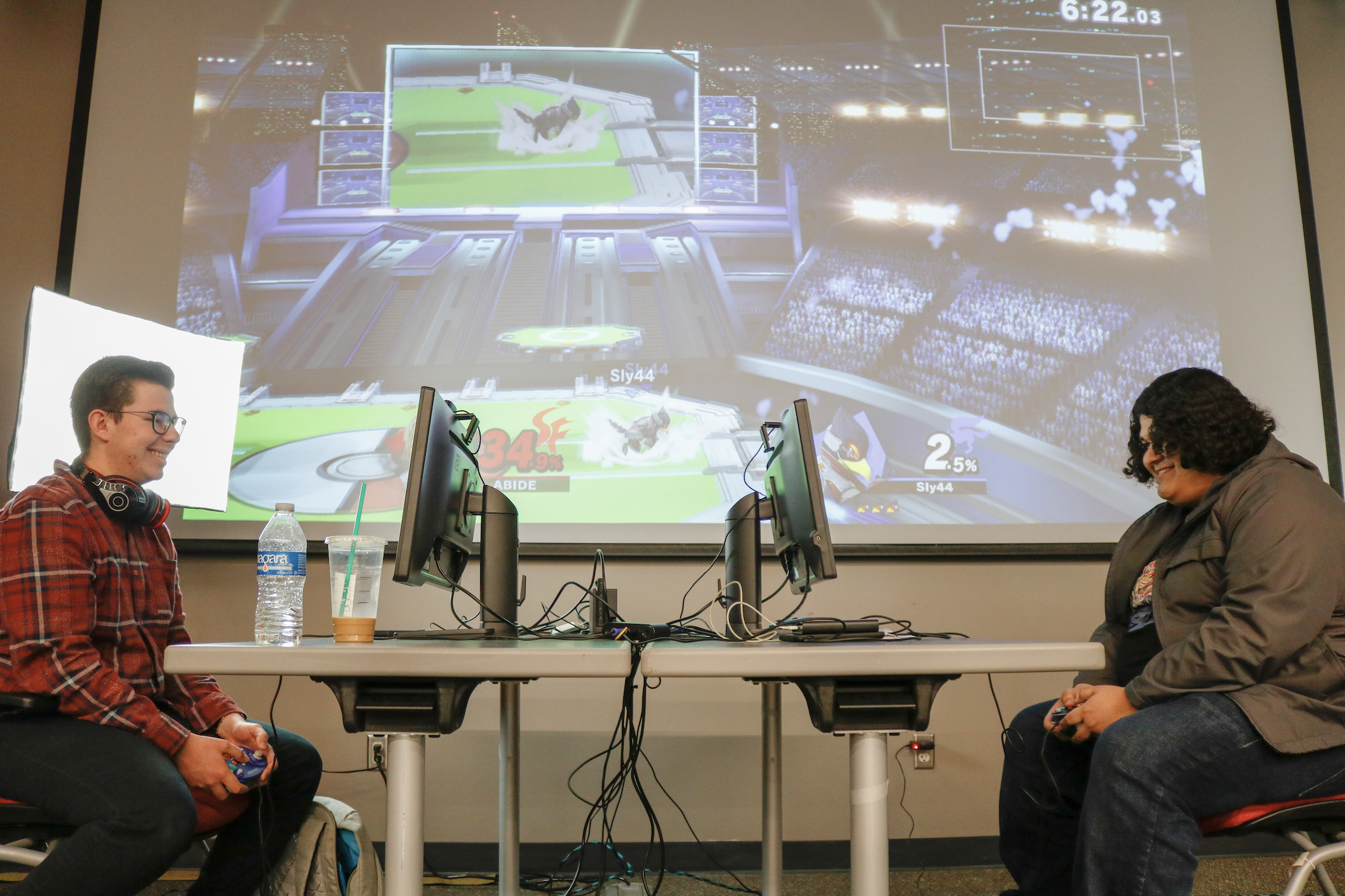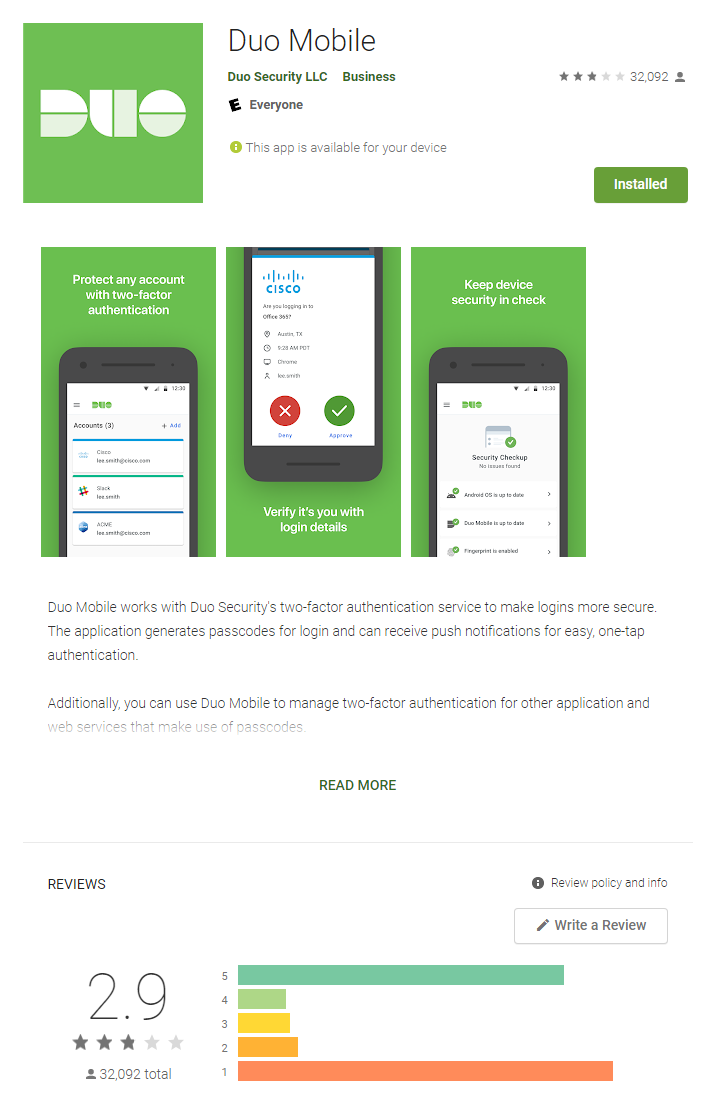Players battle it over “Super Smash Bros Ultimate” in Feb. 22 eSports tournament hosted by CSUDH eSports Association. Photo by Ulises Rodriguez
By Ulises Rodriguez, Staff Reporter
Editor’s Note: This is an expanded version of the story running in the print edition of the Bulletin
Laughter and conversation filled the room as students excitedly prepared themselves to step in front of the camera. One by one, they sat on the director chair to get their makeup done.
But these students weren’t getting ready for a commercial or a debate: they were getting primed to compete in a gaming tournament on Feb. 22 sponsored by the eSports association at California State University, Dominguez Hills, a competitive event filmed by Charter Spectrum.
Each of the dozens of players was hoping to dominate the tournament and take a major step in breaking into the professional ranks of a sport experiencing phenomenal growth.
But just as they were waiting for their moment to step into the spotlight, this university is contemplating taking its first step. A certificate program currently under evaluation, and just last week an email was sent requesting faculty proposals for eSports classes that could be offered as soon as next year.
It would be CSUDH’s first entry into collegiate competitive gaming, which is an offshoot of the rising popularity of professional competitive gaming which is, in turn, a product of the incredible growth of the video game industry. In 2018, gaming generated nearly $120 billion in worldwide revenue, according to an Oct. 1, 2019 article on Businessinsider.com, and some predict that by 2022, that figure will leap to $196 billion.
eSports is a fraction of that, $1.1 billion in 2019, according to the industry tracking company NewZoo, but that was a nearly 27 percent increase from 2018, and by 2022 the company estimated that figure would be nearly $1.8 billion. Additionally, the global viewing audience for eSports content, leagues and events was 395 million in 2018, according to NewZoo, which predicted that would grow to 645 million in 2022.
There are thousands of competitive tournaments held through the year, and with sponsorships, advertising and media rights (including ESPN and Twitch), some tournaments pay out more than $15 million in prize money, including three last year (The 2019 International, $34.3 million; the solo Fortnite World Cup Finals, $15.3 million; and the duo Fortnite World Cup Finals, $15.1 million.
Elite professional players, according to esportearning.com, are raking in a lot of that cash. In 2019, 46 gamers made more than $500,000, including Finland’s Jesse Vainikka whose $3 million in earnings gave him $6.4 million for his career. Not shabby for playing “Dota 2,” a community created spinoff of “World of Warcraft.”
But along with a burgeoning professional presence about 175 four-year universities field varsity eSports teams, according to ncsasports.org, The closest is UC Irvine. There are also 270 Tespa chapters in North America, in which collegiate gamers can participate in tournaments that award scholarship funds.
Collegiate interest in the video game industry isn’t limited to competition. As a high-tech growth industry with plenty of upside, a myriad of careers can be found, from designing and writing games on the playing side, to producing and market analysts on the business side.
Currently, CSUDH’s video game culture consists of students playing in the LSU Game Room, and the eSports association, which began in 2017. The eSports association competes in tournaments, but also partners with several middle and high schools through a pilot program to promote eSports. But the bigger picture is to mentor avid gamers and find their strengths, said Ruben Capato, the eSports association advisor.
There are several programs at CSUDH structured to help eSports students.
“We have a variety of programs for the eSports association, one is… we work with the career center to better prepare our association members to learn those life skills that they’re going to need,” said Caputo.
The association also works with the faculty development center in helping to find workshop curriculum pieces with eSports in mind. While those efforts help students prepare for life after college whether video game-related or not, they also help spread awareness that video games long since shed the label of only being played by teenage boys.
“We’re trying to educate our community on campus so that essentially we start building culture within our campus,” said Caputo.
For CSUDH, its eSports association is only beginning(according to ToroLink there are 113 members) but considering the growth of the video game industry it’s difficult to not think it will grow.
Considering the presence of major companies such as Blizzard, Sony Interactive Entertainment, Naughty Dog, and Treyarch, if CSUDH did create a certification program, Toro students wouldn’t have to go too far to when it comes time to finding internships and possibly jobs in the future.
In Southern California, 11 universities offer bachelor or graduate degrees in video game-related fields, with USC’s program atop most of the lists nationwide. UC Irvine offers a bachelor’s in computer game science, and two eSports certificates: an online certificate in eSports.
At the moment a certificate program at CSUDH is undergoing evaluation Caputo said. It will be announced around April 2020 whether or not the program will be approved.
According to a Feb. 24 email sent by Mitch Avila, the dean of The College of Arts and Humanities, the college is, “supporting an initiative by the President’s Office to increase the visibility and participation of the campus in eSports activities, “and was looking for proposals to create pilot courses related to eSports in spring, 2021.”
Members of the association are all in for a certification program, even if it starts after they graduate. They like the idea both because it might help future Toros land jobs in the industry (and maybe even some professional players) but also because it would further instill a video game culture on this campus that they helped create.
“I would highly recommend an eSports program here at Cal State Dominguez Hills because it will bring everyone together and it will help everyone that’s participating in eSports develop not only in the game as a person too,” said Ryan Phan, a senior planning on becoming a math teacher as well as an eSports advisor.
Destiny Ramirez, a senior graphic design major who would like to get into game development, agrees.
“I would absolutely recommend an eSports program at any college at any place,” Destiny Ramirez said. “I feel like it’s given everyone an opportunity. It’s not just individuals, not a team, not a club, it’s a community.”


